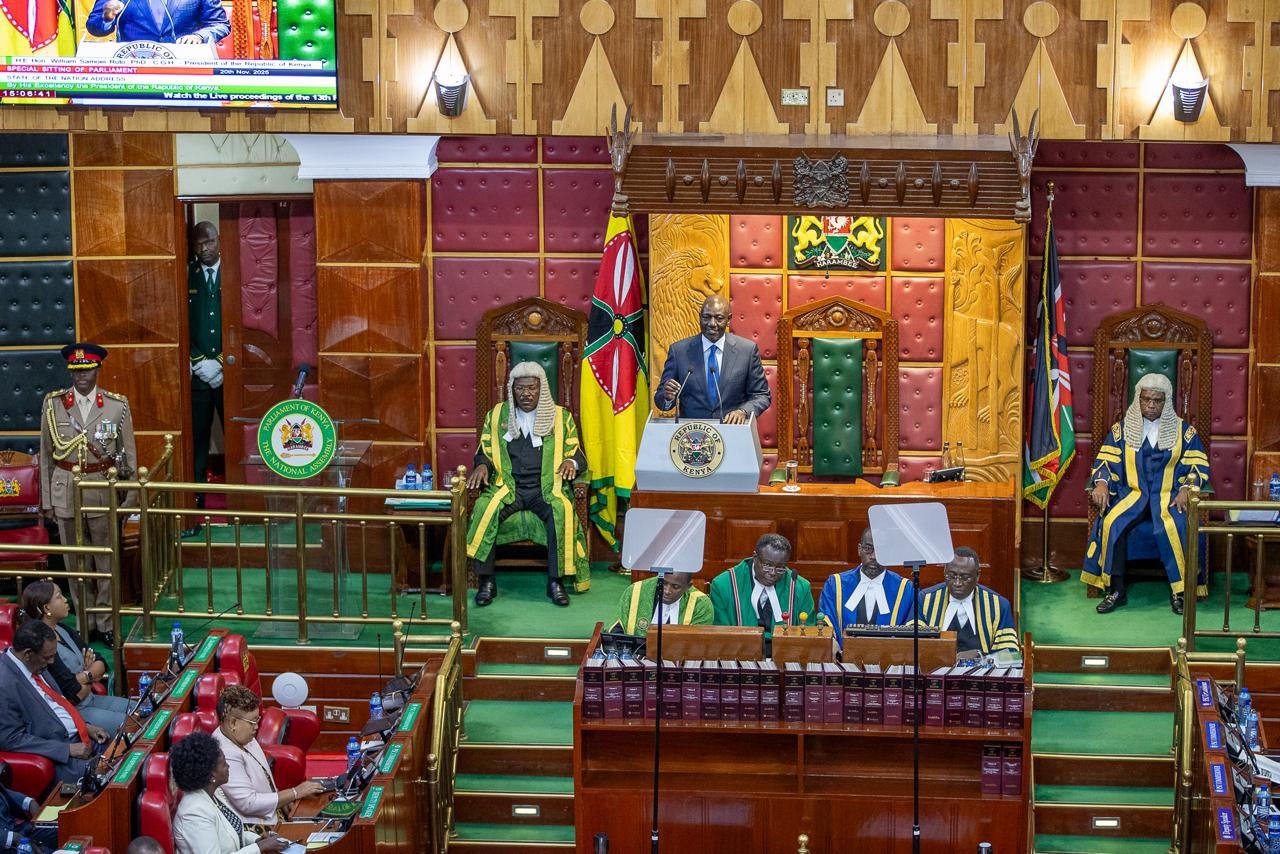The US trade representative is in Nairobi to co-lead a meeting that seeks Kenya's partnership in a fresh trade deal.
The Trade and Investment Framework Agreement (TIFA Council) is pursuing various agreements even as regional peers express concern over Kenya's solo approach.
Yesterday, Trade Representative, Katherine Tai met patron circle members of the American Chamber of Commerce-Kenya (AmCham Kenya) ahead of today's meeting.
"The meeting marks the fifteen-year anniversary of the US–EAC TIFA and comes as the Biden-Harris Administration intensifies engagement both bilaterally with Kenya and throughout the continent,'' the US said in a statement.
The US signed the TIFA deal in 2008 with EAC to deepen trade ties as well as lead efforts to attract American investments into the regions.
Tai is expected to meet President William Ruto and Trade Cabinet Secretary Moses Kuria as Washington accelerates negotiations of the proposed US-Kenya Strategic Trade and Investment Partnership (STIP).
The deal targeting 11 pillars of trade will replace the two-decade-old Africa Growth and Opportunity Act (Agoa).
The US negotiators held the first round of conceptual discussions with the Kenyan team led by Trade Principal Secretary Alfred K’Ombudo between February 6-10 in Washington DC.
The two nations seek to partner on trade facilitation in agriculture, fostering consumer, business and worker trust in the digital economy, protecting the environment, integrating small traders into international trade and preventing and combating corruption.
However as the two countries work towards the 2024 deadline to seal the trade deal, it is emerging that Kenya's regional peers are disgruntled.
A source close to East Africa Community secretariat told the Star in confidence that led by Tanzania, other EAC members states are concerned about Kenya's solo trade deals that do not factor in regional integration.
"The US–EAC TIFA meeting today could have emanated from those concerns. Regional peers are yet to heal from Kenya's recent solo mission to sign the Economic Partnership Agreement (Epa) with the European Union,'' he said.
The signing of the trade deal in June brought an end a ten-year block on the EPA, originally negotiated with the then six-nation EAC only to be blocked by several of its members.
The deal now awaits the endorsement by the European Parliament. Kenya continues to enjoy duty and quota free trade with the EU under a temporary special arrangement in place since 2014.
Tanzania, Uganda and Rwanda refused to sign the EPA with Brussels on the grounds that it would require them to open up their own economies to European firms.
"There are concerns among EAC officials that the EU's access to Kenya's market could undermine the region's common external tariff, and they say that Kenya's trade talks with the US could do the same,'' the EAC official said.
Even so, the US has been brushing off the concerns, with Washington insisting that any trade agreements in Africa will adhere to the ambitions of more integration and trade as per the African Union.
“Right now we are pursuing a number of different initiatives, one of them in a very multilateral context in the Indo-Pacific,” Tai said last year when she led the US delegation to President William Ruto's inauguration.
Already, there are jitters around the importation of second-hand clothes, with the EAC seeking a ban on the trade through the increase of taxes on cotton by member states.
The US government has made it clear that it has no plans to change its policy on the exports of second-hand clothes.
“I think that there are some clear trade discipline concerns from a strict WTO legal standpoint. But I will be very interested to hear Kenya’s perspective and the EAC's perspective about the goals that they are about to accomplish,'' Tai told a regional paper last year.
This goes against 2016's plan by five East African countries; Kenya, Uganda, Tanzania, Burundi and Rwanda to ban Mitumba importation.






![[PHOTOS] Betty Bayo laid to rest in Kiambu](/_next/image?url=https%3A%2F%2Fcdn.radioafrica.digital%2Fimage%2F2025%2F11%2F3b166e2e-d964-4503-8096-6b954dee1bd0.jpg&w=3840&q=100)







